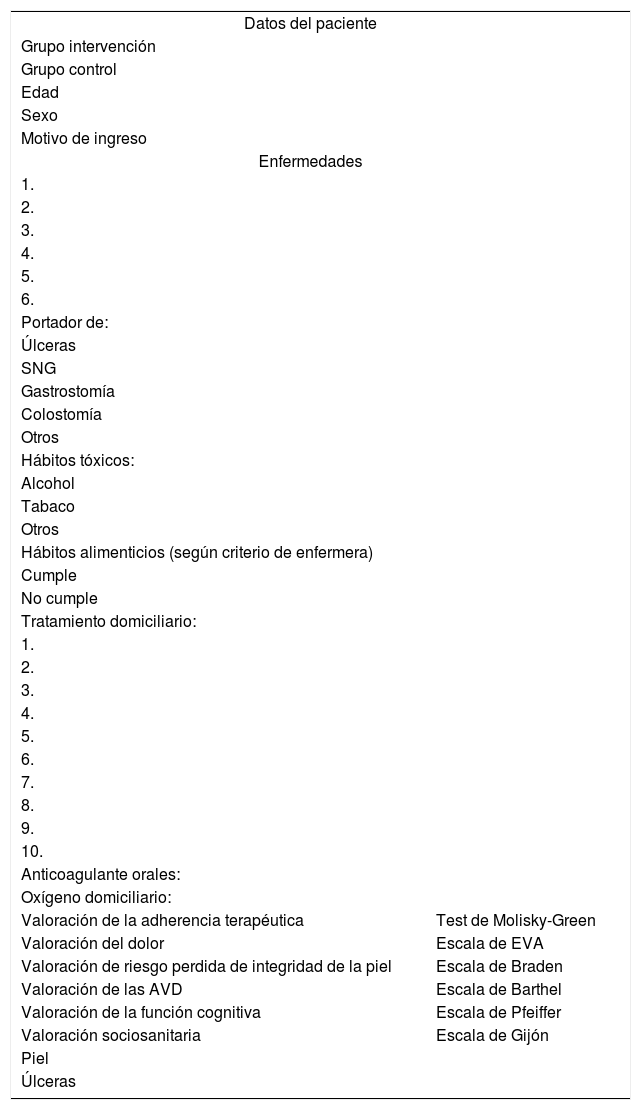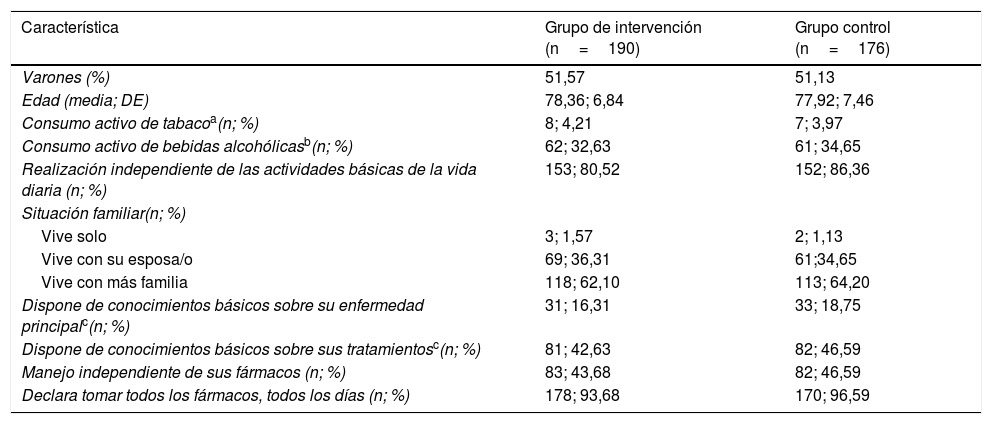Evaluar el efecto de una intervención formativa realizada por enfermeras en pacientes crónicos complejos durante el ingreso hospitalario en un servicio de Medicina Interna.
MétodoEnsayo clínico pragmático de una intervención educativa de enfermeras frente a la actuación habitual. Para el grupo de intervención se diseñó un plan de educación en cuidados, personalizado para cada paciente, en función de las necesidades detectadas en una primera entrevista. La intervención se extendió durante el tiempo del ingreso y se dispuso de un teléfono de contacto al alta para la resolución de dudas.
ResultadosDe entre los 498 pacientes seleccionados inicialmente fueron excluidos 131 por no cumplir los criterios para ser considerados pacientes crónicos complejos o por no detectarse deficiencias en su formación o sus cuidados. Un paciente (0,20%) no aceptó participar y no hubo abandonos. De los 366 participantes, 190 se integraron en el grupo de intervención y 176 en el control. En los primeros 8 días tras el alta, reingresaron 2 (1,05%) pacientes del grupo de intervención y 8 (4,54%) del grupo control (p=0,05). En los primeros 30 días tras el alta reingresaron 26 (13,70%) y 33 (18,75%), respectivamente (p=0,10).
ConclusionesEste estudio muestra como una intervención educativa por enfermeras en pacientes crónicos complejos, realizada durante el ingreso hospitalario en unidades de Medicina Interna, puede reducir los reingresos a corto plazo.
To evaluate whether a training intervention performed by nursing professionals in complex chronic patients, during hospitalisation in an internal medicine service, can modify the pattern of readmissions or reduce their number.
MethodPragmatic clinical trial of a nursing training intervention vs. habitual performance. For the intervention group, a training plan in care was designed, personalised for each patient, according to the needs detected in a first interview. The intervention was extended during the time of admission and a contact phone was available after discharge to resolve doubts.
ResultsAmong the 498 patients interviewed initially, 131 were excluded because they were not a complex chronic patient or because they found no deficiencies in their training or care. One patient (.20%) did not agree to participate and there were no dropouts. Of the 366 participants, 190 were included in the intervention group and 176 in the control group. In the first 8 days after discharge, 2 (1.05%) patients from the intervention group and 8 (4.54%) from the control group were re-admitted (p=.05). In the first 30 days after discharge, 26 patients (13.70%) and 33 patients (18.75%) respectively (p=.10) were readmitted.
ConclusionsThis study shows how a nursing training intervention during hospitalisation in Internal Medicine in complex chronic patients reduces short-term readmissions.
Artículo
Comprando el artículo el PDF del mismo podrá ser descargado
Precio 19,34 €
Comprar ahora









